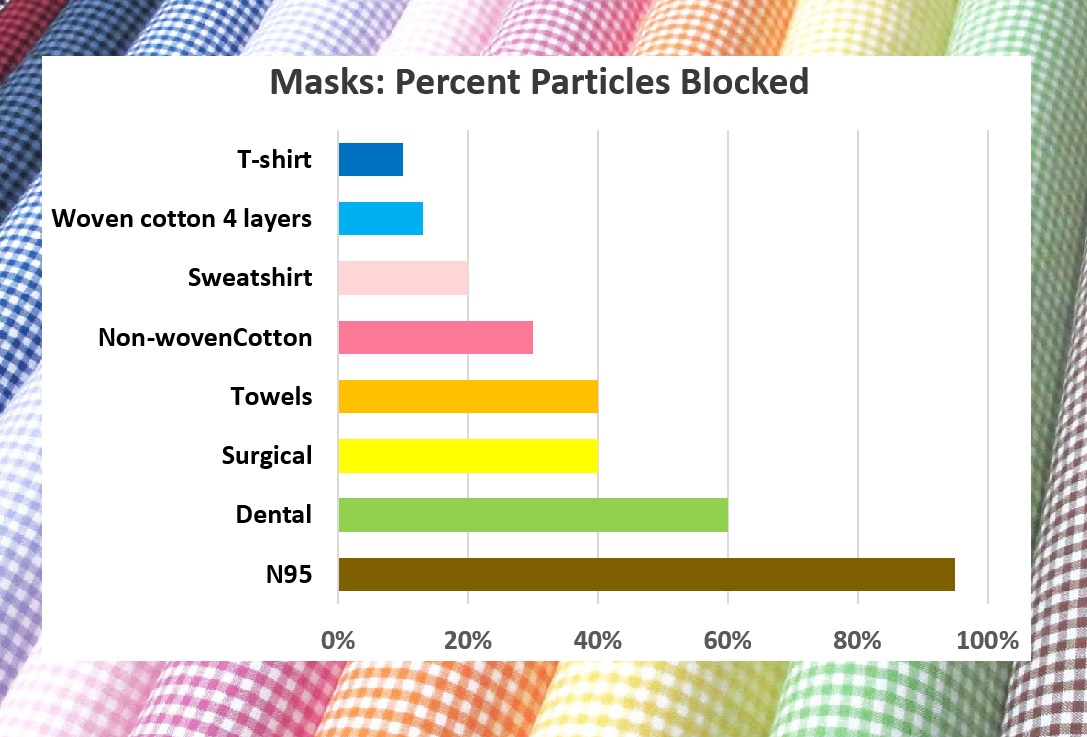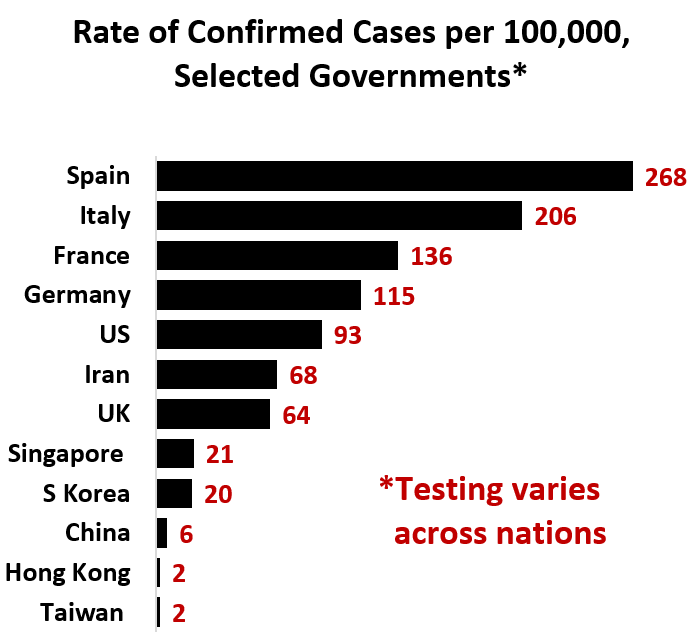Face Mask Data: Ars Technica
Face Mask Data: Ars Technica
Read the article from Ars Technica about research on the efficiency of various masks.
Beth Moss is Ars Technica’s health reporter. She’s interested in biomedical research, infectious disease, health policy and law, and has a PhD in microbiology.
Read about mask policies in Europe from Politico.
Read about the economic value of cloth face masks from Yale Insights by Jason Abaluck and Judith A. Chevalier with Yale School of Management: "We ask what is implied if masks only reduce by 10% the likelihood that an infected person transmits the virus (even though our cross-country analysis suggests the impact might be much larger). Because the stakes are so large, even a 10% reduction implies $3,000-$6,000 in value per mask! This is because the epidemiological models suggest that so many people are at risk of becoming infected and dying.... The gains from universal adoption are extremely large no matter how you calculate them."

(Source: Ars Technica, Aerosol and Air Quality Research and the US National Institute for Occupational Safety and Health)
